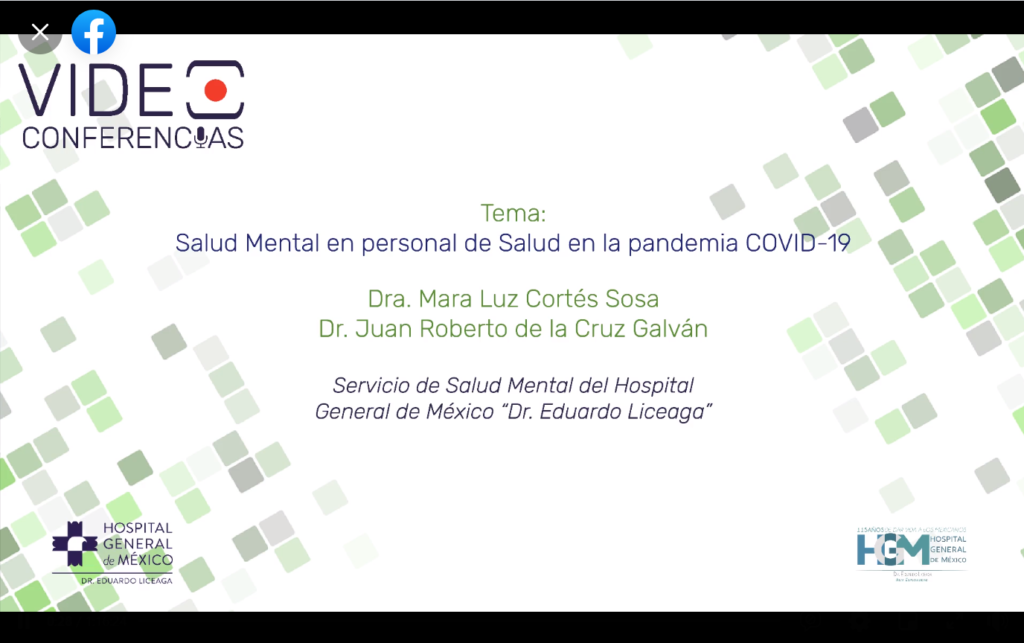How do you inform people about COVID-19, support health workers, and help individuals and families during a pandemic? Martín Gómez-Silva, head of the Centre for Information and Documentary Research on Health of the General Hospital of Mexico, presented some of the educational and communication work carried out by the Hospital, in the context of the Education and Solidarity Network webinar.
How do you provide health care for a little-known disease while seeking to prevent an increase in infections? Faced with these challenges, the General Hospital of Mexico – the largest hospital in the country and the one that has treated the most patients for this disease – has implemented an education and communication programme through a series of webinars carried out from the hospital’s information centre and in coordination with the medical services in an interdisciplinary approach to health.

Given the scale of the health crisis and the pressure on health workers (time constraints, stress), one of the first objectives of these activities was to provide support and advice to the hospital’s medical staff. Several webinars concentrated on the topics of psychological first aid, bereavement management in times of COVID-19 or even the mental health of healthcare staff.
The second major objective of these webinars was to support individuals and families suffering from the consequences of job loss, stress due to changes in work routines, or housing conditions inadequate for lockdowns or quarantines, including practical advice. Topics such as child and adolescent mental health in the COVID-19 pandemic and managing food anxiety during a pandemic were covered in the webinars.
Finally, the aim of these webinars was to make scientific information on COVID-19 and the progress of research available to as many people as possible. Webinars were organised on the management of COVID-19, vaccination, the situation of health services and the little-known consequences of the disease.
“One of the main characteristics of this crisis has been the increase in uncertainty, which is why we believe that communication actions of this type, carried out in different cities in Mexico and other Latin American countries, provide a good space for exchange between health workers and the general public,” said Martín Gómez-Silva.
The webinars now also cover topics beyond the pandemic, such as advice on primary care and health education, social protection floors or gender-based violence.
Examples of webinars (in Spanish):
- Managing food anxiety during a pandemic https://www.facebook.com/228071791051615/videos/1005572869873564
- Child and adolescent mental health during the COVID-19 pandemic https://www.facebook.com/228071791051615/videos/269211774339412
More information on the centre’s Facebook page: https://www.facebook.com/CeidsHGMEL/videos




